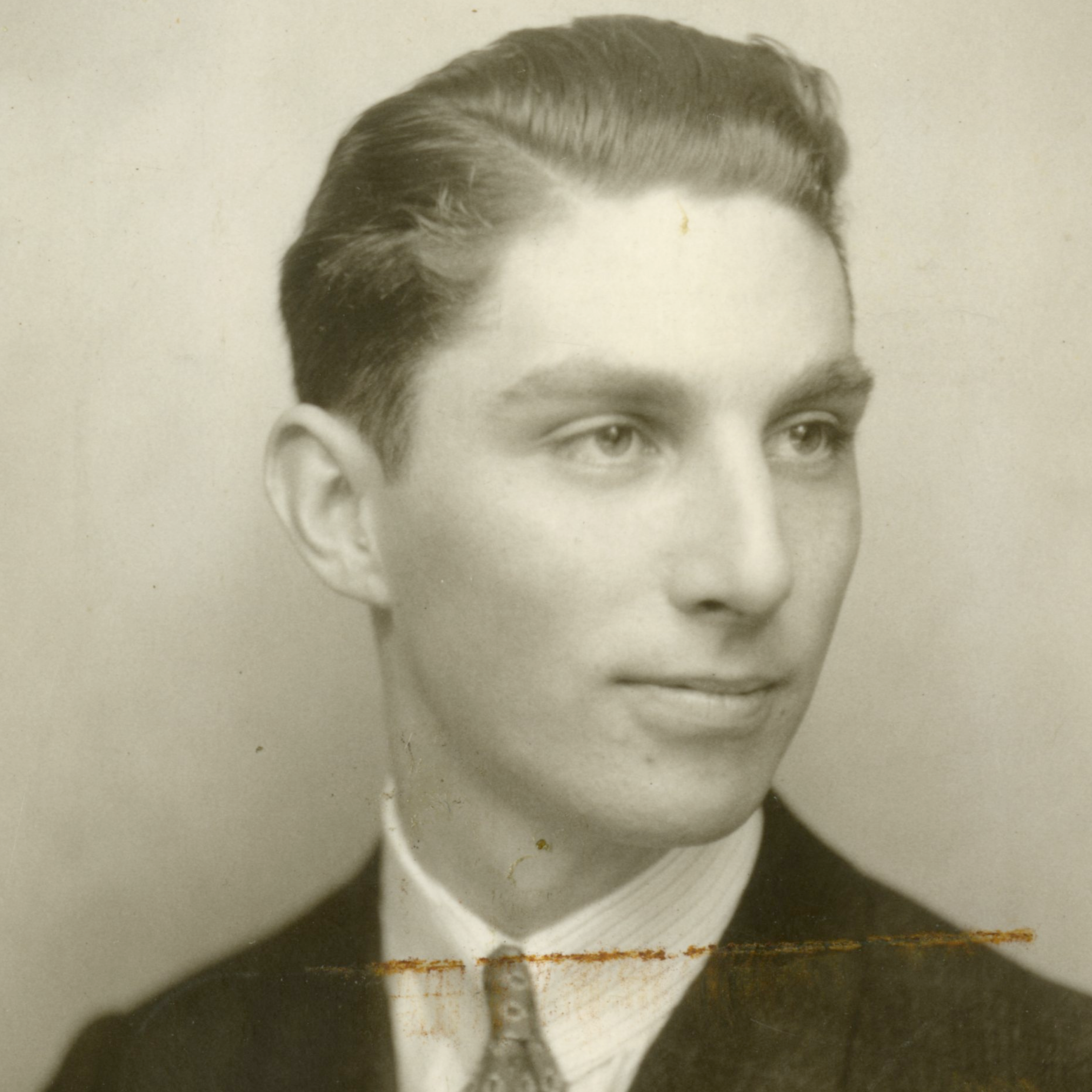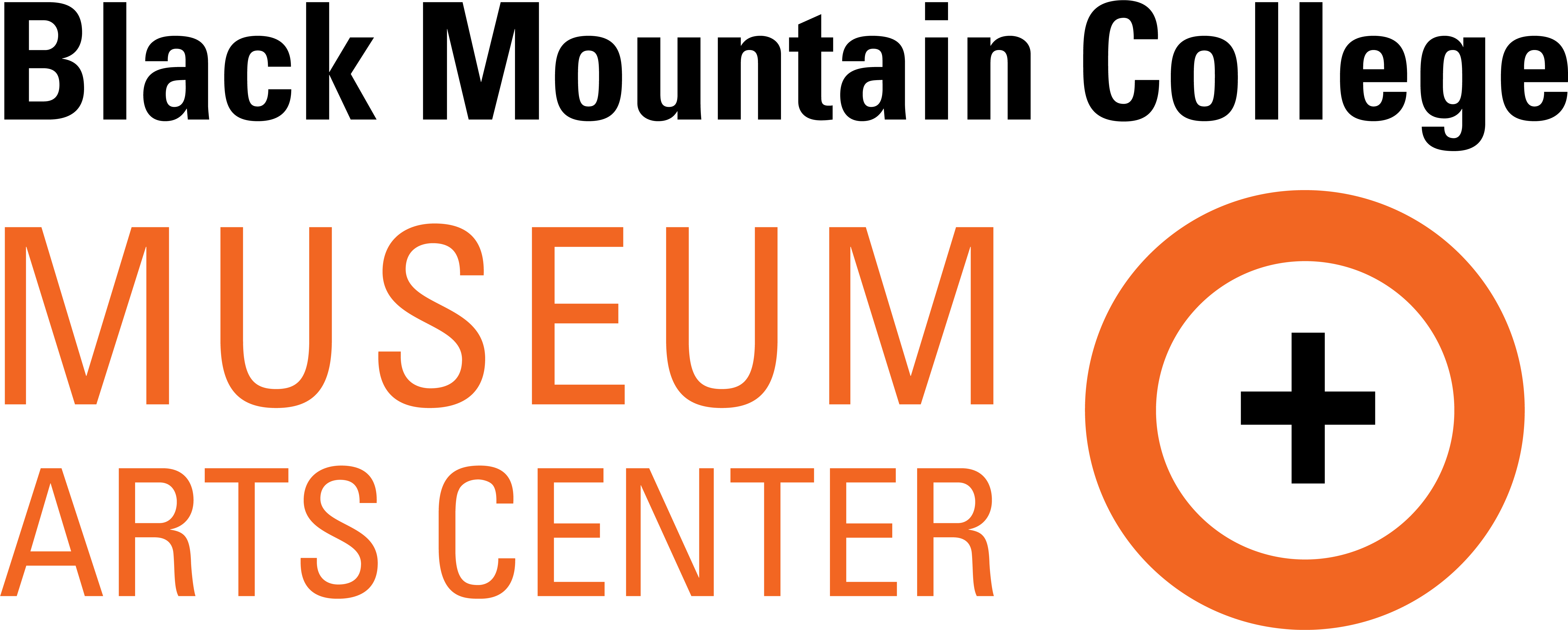George Hendrickson

Photograph included with student application. Courtesy of Western Regional Archives
Courtesy of Western Regional Archives
FOCUS
Performance Art
ROLE
Student
ATTENDANCE
1935 - 1939
BIRTH
1914-12-16
Brooklyn, NY
DEATH
1991-01-19
George Hendrickson enrolled at Black Mountain College for four years from 1935-1939. His focus was on art and on theater. He is noted in college bulletins participating in scenery and stage design. He is listed as a participant in Danse Macabre, and Winterset.
He studied with both Josef Albers and Xanti Schawinsky. He graduated with Samuel Selden, who taught theater at the University of North Carolina at Chapel Hill and was a director of the Carolina Playmakers, as his examiner. In the summer of 1938 he assisted Xanti Schawinsky in the design of the Pennsylvania exhibit at the New York World’s Fair.
From 1939 to 1941 he worked in little theater as a scene designer and instructor while attending Yale University for this M.F.A. in theater (1942). During the war he served as a press censor for the United States Army. He was Associate Technical Director of Le Petit Théâtre du Vieux Carré in New Orleans from 1947-53, and from 1946-1985, he taught speech and theater and directed and designed plays for the Tulane Playhouse at Tulane University.
Biography written by Mary Emma Harris for the Black Mountain College Project.
Relationships
Examiner: Samual Selden, Associate Professor of Dramatic Art at the University of North Carolina
Asheville Art Museum Collection
George was drafted while attending BMC and sent updates to the bulletin while away.
2017.40.126 October 4, 1943 bulletin,
"Lieutenant George Hendrickson writes from California: “I have been to another school.. this time a review of gunnery plus the use of small arms. Nothing very exciting happened except that I had a finger laid open in bayonet practice and had to have three stitches taken….. It has been with increasing interest that I greet the arrival of the College Bulletins. I do hope that the winter with its struggles and time-consuming tasks won’t stop the publication of it…”"
2017.40.149 March 20, 1944 bulletin,
"Lieutenant George Hendrickson writes from India on February 29: “When I left California, India was just about the last place that I imagined I would be stationed. There was a rumor when I was still at Camp Reynold to the effect that we were headed for India, but one doesn’t give too much credence to rumors in the Army… Our crossing was long and uneventful; of course we may never know exactly the conditions. I know that at sometimes we were running faster than at others and zig-zagging more frequently. It was odd though- the complete lack of care that we had. The ship was formerly a liner, so we were much more comfortable than many more less fortunate ones, who had to voyage ‘down the sea’ in Victory Ships. We had three excellent meals a day; and, as all we did was eat, sleep and read, it was fortunate, for under such circumstances, food becomes the object of much comfort or otherwise, I can’t tell you much else about the board, as our route, name of vessel, and other things are all secret…..We arrived at an Indian port; and as it took some days to disembark and unload, we were given shore leave from 2:00 P.M. to 9:00 P.M. for two days….Everywhere we went we were accosted by peddlers selling whips, knives, fountain pens, watches, women- in fact everything you could want or not want. The first time one of the ‘knife merchants’ approached me, I thought I was about to be attacked. They got very close, those peddlers, then their hand whips toward you and a seven-inch blade pops in within three inches of your naval. Then they smile and cry: ‘Knife, Sahib, very fine knife!’ and pursue you for blocks. It gets to be nerve-wracking after a bit…..As you wander through the streets, you pass little hole-in-the-wall shops selling all sorts of goods: Indian hand work, sandals, shoes, brass objects, flashlights, food. All of the proprietors shriek at you to come and buy and shriek abuse at you in Hindustan if you don’t…..Eventually we were loaded on a dirty, smelly troop train. The coaches were built for the transportation of Indian troops and are quite unlike anything in the States. The aisle is on one side, and the seats face each other, forming compartments- similar to European trains. The back folds up and each section can sleep six men. We had four to a section and used the uppermost bunk for our equipment. After much jabbering and false starts, we were off. I don’t think we averaged over twenty-five miles an hour. When we realized that it would take days to do the journey that would take only hours back home, we relaxed, and I, for one, enjoyed the trip co end!.... For the most part the country we travelled over was flat- looking and rubbish was nowhere to be seen. We soon found out why: In this country everything is salvaged by the Indians- paper, tin cans, even garbage. As human excrement is used widely as a fertilizer, we were cautioned against native foods, told to eat only coconuts and fruit with skins unbroken. It was hard to see all the delicacies at the stations and noy buy them, for we were subsisting on C Rations and Billy Beef. We did eat enormous quantities of bananas, coconuts and tangerines, which we bought, after much haggling, from the hawkers at the stations….At each station where we stopped- and this was practically every station we came to- hoards of natives came down to beg from us. As we are, waifs fought over pieces of bread we dropped and over scraps we threw out of the windows. It was unbelievable- the poverty of the people here! The poorest Negro in the States is a king compared to the average Indian we saw in the interior of India….”"
2017.40.188 February 5, 1945 bulletin,
"Lieutenant George Hendrickson writes from China on January 19: “I am now in China, having been transferred from the India-Burma Theater....I wish I could stay in one place long enough to unpack and smoke a cigarette. I've been moved at least every three months since hitting Asia. I just get to know one office when off I must go to another one. I’m not in the mood to write my complete impressions of China at this time. I am in a city that is 2,200 years old and is one of the most normal, untouched cities in unoccupied China. It is surprisingly clean and the people are well fed...I have been to several tea parties to meet the local press...and have had to make a small speech at each one. I will probably learn to become a decent after-tea speaker... I had a field day in the shops until my money ran out. Now I own quite a few paintings of various and sometimes dubious merit. I hope to increase my modest collection of statuettes, but they are rather expensive, to say the least. I get confused about money here, as the exchange rate on the US Dollar is 480 to one and we talk in terms of thousands all the time...”"


